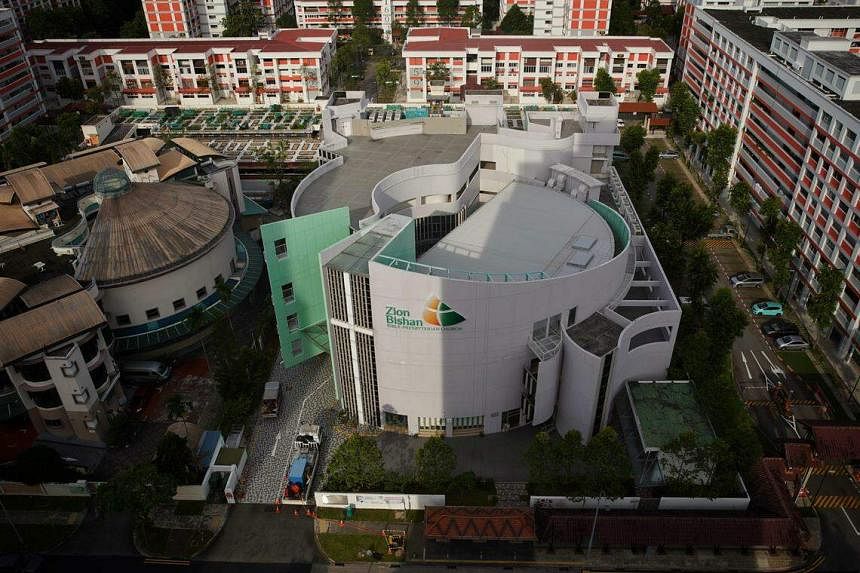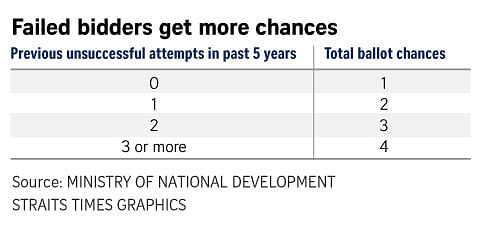
SINGAPORE – Religious organisations are set to pay less for new leasehold land and lease renewals, after the Government revised its policies for allocating land to places of worship.
From the third quarter of 2023, land for places of worship will be allocated through a ballot, where winning bidders pay a pre-determined price that reflects the land’s market value, the Ministry of National Development (MND) announced on Sunday.
The ballot system will replace competitive tenders and remove the need for organisations to outbid each other for land, which is how most place of worship sites have been awarded since at least the early 1990s.
The changes come after a government review, and amid religious organisations’ concerns over place of worship land prices, which have risen sharply in recent years due to competitive bidding.
High winning bids affected not just organisations looking for new sites, but also those already on leasehold land, as recent bids are factored into the valuation of lease renewal premiums.
In calculating the value of new sites to be put up for ballot later in 2023, the chief valuer, who operates independently of the government, is expected to reference prices of place of worship land that have never been subject to competitive tenders, such as those used for mosques.
At a Vesak Day celebration at Ngee Ann City on Sunday, Minister for Culture, Community and Youth Edwin Tong said the prices of place of worship sites under the ballot are expected to be generally lower than that of similar sites recently tendered out.
Lease renewal premiums are also expected to be lower than present rates as they “will be in line with the new pricing framework”, said Mr Tong, who is also Second Minister for Law.
He said the fixed-price ballot is more equitable for religious groups who have less resources and thus have a lower chance of winning competitive tenders. They will also have greater certainty upfront on the price, and can decide whether it is within their budget.
Mosque sites are directly allocated to the Islamic Religious Council of Singapore (Muis), which centrally coordinates mosque development. Muis pays for land at market prices determined by the chief valuer, and Law Minister K. Shanmugam said in October 2022 that the absence of bidding has generally led to prices of mosque land being lower than competitive tender sites. The prices of mosque land are not known.
Across five Chinese temple sites awarded between 2011 and 2020, winning bids averaged about $1,752 per sq m per plot ratio, up from an average of about $1,066 per sq m per plot ratio across six sites awarded in the decade prior.
As for church sites, the average winning bid across four sites awarded between 2011 and 2020 was about $2,963 per sq m per plot ratio, up from bids that averaged about $1,902 per sq m per plot ratio across eight sites awarded in the decade before.
MND said the price of each site under the ballot system may vary due to site-specific factors such as location, land area, gross floor area and allowable use. Land prices, which will be announced at the time of launch, will also be adjusted for inflation.
To ensure that ballot chances are distributed fairly, MND said organisations that obtained a new site in the past five years will not be allowed to ballot.
Also excluded from ballots are organisations that renewed their lease, tenancy agreement or temporary occupation licence in the past two years. This will not affect organisations that completed renewals before Sunday – they can ballot when sites are launched in 2023.
Exceptions to these ballot exclusion rules will be considered on a case-by-case basis, said MND.
Organisations that were unsuccessful in balloting and tendering will be given an additional ballot chance for each failed attempt in the past five years, capped at four chances.
MND said ballot chances are capped at four to strike a balance between ensuring that organisations with multiple unsuccessful attempts have a high enough success rate and providing others some chance of winning.

To qualify for the ballot, organisations will continue to have to meet rules that were introduced in 2018, which include demonstrating community support and involvement as well as their need for space, and having adequate local funding.
Among the organisations that met these rules and tendered for land since 2019, one was beaten to a Chinese temple site while three were outbid for church sites, which should qualify them for additional ballot chances later in 2023.
Mr Tong said the Government hopes that the new fixed-price ballot “will give greater assurance to religious organisations, so that they can focus on what they do best, which is serving the community and promoting religion, and not have to worry too much about land prices”.
https://www.straitstimes.com/singap...h-ballot-system-replacing-competitive-tenders
